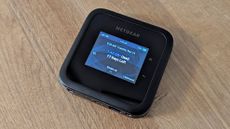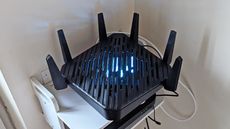When you sign up for one of the best VPNs, one of the main capabilities you might well be looking to gain from the service is the ability to secure a greater degree of privacy online, and to remain anonymous in terms of your IP address.
The short answer to our titular question is that yes, using VPN software does hide your IP address - substituting your real IP with a ‘fake’ IP instead (namely the IP of the VPN server). The longer answer follows, complete with in-depth explanations and slight caveats.
- So...what is a VPN and how does it work?
- Discover what you can do with a VPN for Netflix
- The best out there? Read our ExpressVPN review
Definitions first
Before we launch into this discussion, it’s worth defining both the terms VPN and IP address for the uninitiated who may feel a bit lost at this point.
A VPN is a Virtual Private Network, which in simple terms is a service that’s designed to give you more privacy online as mentioned, and a better level of security overall when it comes to your internet traffic (along with other benefits besides).
A VPN works by encrypting the data leaving your device and sending it via one of the provider’s (usually many) servers – we will go into this in slightly more detail in a moment.
An IP address is a string of numbers which identifies your PC on the internet, much like a postal address identifies the location of your house in the real world.
Why would you want to hide your IP anyway?
When you’re online, the data that you are sending out can be followed back to your IP address, meaning it can be traced back to your PC.
With a number of parties potentially wanting to do so – and furthermore being able to determine your (rough) location in the real world – subsequently exploiting all this knowledge to their own ends. For example, companies can leverage the ability to see where you’ve browsed online (using cookies) to build up a picture of your browsing habits (and your likes or interests) and target adverts at you.
A VPN can prevent this kind of invasion of privacy by hiding your IP and keeping you anonymous online, and it can also stop the likes of your ISP potentially snooping on your surfing history.

So how does a VPN hide your IP?
If you’re using a VPN app on your PC, when data is sent online from your system, everything happens differently. The data is encrypted before it leaves your device, and rather than being sent straight online, it is instead sent to one of the servers in the VPN network, before proceeding to its destination on the internet as per normal.
The crucial difference with this scheme of things is that the source IP address (which can be traced) is now the VPN server – which can be any one of thousands of servers, potentially, anywhere across the globe – rather than the IP of your computer.
In effect, the real IP address of your computer is hidden; the IP address of the VPN server is all that any potential snoopers can see.
Is there any danger my real IP could still be found somehow?
As long as the VPN is functioning correctly there should be no danger that your real IP could be visible to anyone – your computer will have total privacy online, and you’ll be effectively anonymous.
However, matters aren’t quite as straightforward as that, as some VPNs – usually the less reputable or reliable services out there – can suffer from IP leaks, where your real IP is revealed, or other kinds of unwanted leakage like DNS leaks. The latter can be avoided by using VPNs that operate their own DNS servers, while implementing DNS leak protection measures. (You can test for DNS leakage or other issues by using IPleak.net when connected to your VPN).

Also, there’s another scenario in which the VPN connection drops out in the same kind of way that your internet connection can occasionally suffer an outage. In those cases, your real IP might suddenly become visible, if only temporarily.
The way that any good VPN provider gets around this is by implementing something called a ‘kill switch’. This kicks in if the VPN connection should drop, and stops your system sending data online until the VPN is successfully re-established (hopefully in short order). In this case, you remain protected even during these unfortunate glitches.
Does a VPN hide your IP?
A VPN does indeed hide your IP, but the slight caveat is that your real IP may just become visible in certain circumstances, as we’ve discussed.
When choosing a VPN, go with one that clearly lays out how it defends against the various kind of leakage scenarios that can expose your real IP. Furthermore, make sure the VPN software has a kill switch, preferably across not just the desktop client, but also an iPhone VPN or Android VPN if you’re going to use them.
- Discover the best streaming VPN for bypassing geo-restrictions













